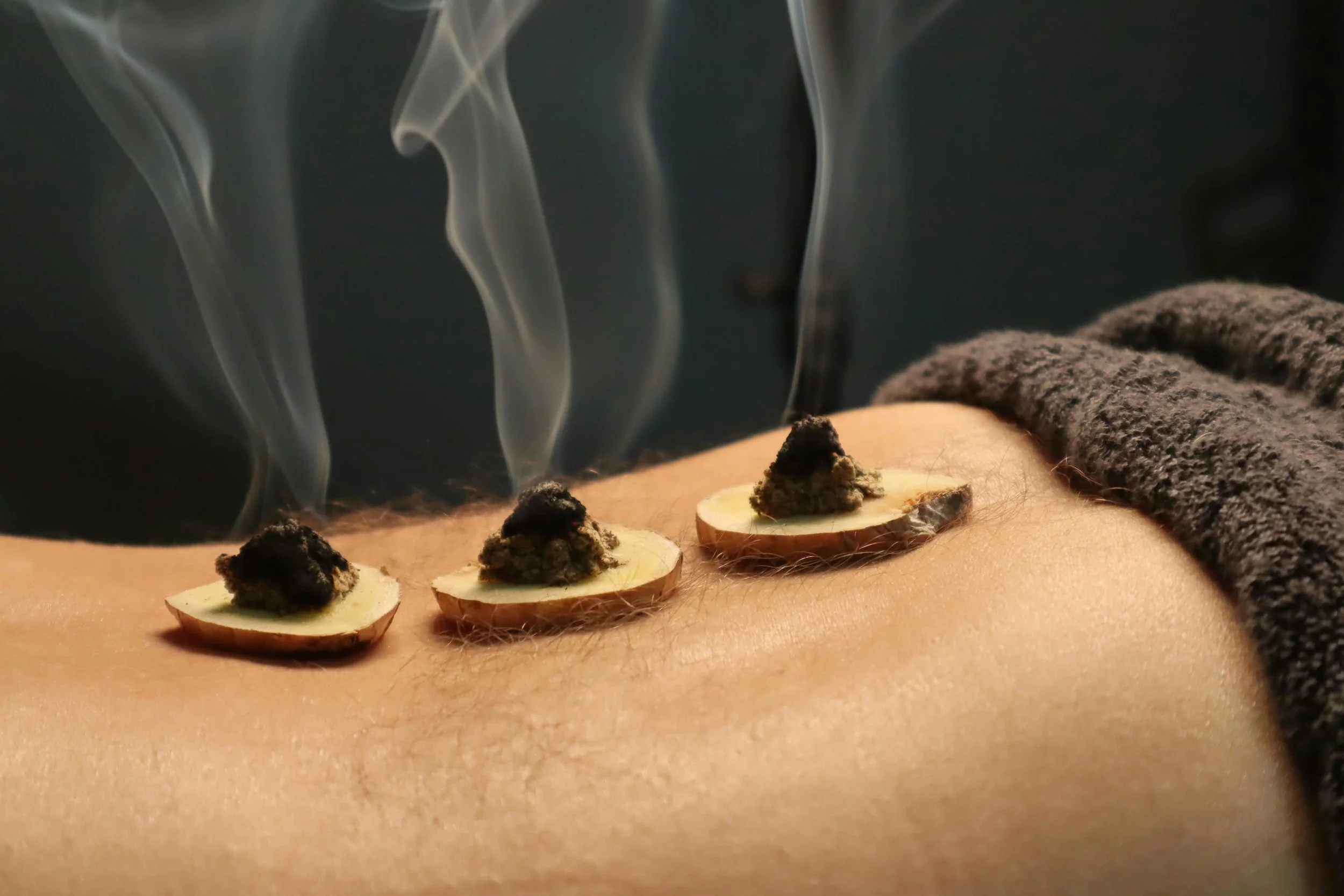Acupuncture
Acupuncture was developed in ancient times based on an understanding of how the human body perfectly reflects all other systems in nature, including ecosystems and the cosmos. Over centuries it was passed down from sage to pupil, with each generation building upon the wisdom they received.
In modern times, the specific actions and mechanisms of acupuncture in terms of Western biomedicine have been displayed by high-quality, peer-reviewed research. The predictable actions of acupuncture from the perspective of neurology, endocrinology, immunology, and gastroenterology, has resulted in an effective integrative approach to acupuncture wherein the practitioner overlays acupuncture theory and practice with the wisdom of modern biomedicine. The action of acupuncture occurs through stimulation of tiny and specific nerve fibers, and thereby specific blood vessels, organs, and other tissues, while releasing a variety of beneficial endogenous chemicals.
At Nuwa Integrative Wellness, we combine the ancient principles of acupuncture with a modern, research-based knowledge, resulting in enjoyable treatments and positive outcomes.
What to Expect
Acupuncture consists of the insertion of very thin, virtually painless pins into specific points on the body, stimulating the body’s innate ability to balance itself and recover from illness.
After a brief chat with your provider, you will usually lay on a warm and comfortable treatment table, with bolsters, therapeutic heat lamps, and relaxing music (if desired). Your provider will do an examination, which may be include feeling your wrist pulse, examining your tongue, and potentially palpating certain locations or performing orthopedic tests. They will then explain what they recommend as far as your treatment for the day and confirm you feel good about it. Your provider will then often insert needles and/or perform other modalities such as moxibustion, cupping, bodywork or external Chinese herbal application. While you rest with your needles or soon after your treatment, your provider will complete your treatment for the day by writing up a summary of recommendations and resources, compiling educational handouts, preparing a Chinese herbal formula prescription, if indicated that day.
Patients frequently report that treatments are extremely pleasant and relaxing, and that they feel well-cared for. Generally, patients become accustomed to an expected flow to the treatment, yet there is often an interesting variety of modalities you may experience.
Treatments are completely tailored to your preference. What is of utmost importance is that you are comfortable and experience relaxation as a result of your treatments. We listen to your words, your story, and your preferences carefully and thereby create individual treatments and longer-term treatment plans that feel good for you. At the same time, we educate you to an appropriate extent so that you can make informed decisions regarding your treatments, in order to support you receiving the best possible outcomes.
How it Helps
Acupuncture has been shown to significantly help gynecological and obstetric issues of all sorts, as well as pain, digestive complaints, anxiety, depression, sleep difficulties, skin issues, pain, immunological conditions, and much more.
In Chinese medicine terms, acupuncture helps to balance, strengthen, and smooth out the flow of energy in the body, so that the body can function more efficiently in the physical, emotional, mental, and spiritual realms. In terms of a modern, biomedical perspective, the stimulus from acupuncture needling creates a cascade of signaling throughout the connective tissue, involving the blood, nerves, and immune system.
Acupuncture may be able to help you achieve specific health goals — but if you don’t have any significant problems at hand, general, common benefits reported by many our patients include better moods, less negative impact by stress, more feelings of joy and connection, balanced menstrual cycles, less allergies and illnesses, and improved energy, libido, sleep, digestion, and skin.
Additional Resources
A great deal of quality modern research has demonstrated specific benefits of acupuncture and various mechanisms for its effects have been investigated. To learn more, we recommend referring to the following studies:
Cheng K. Neurobiological mechanisms of acupuncture for some common illnesses: a clinician’s perspective. J of Acupuncture and Meridian Studies. June 2014;7(3):105-114
Han J, Terenius L. Neurochemical basis of acupuncture. Annual Review of Pharmacology and Toxicology. 1982;22:193-220.
Melzack R, Stillwell D, et al. Trigger points and acupuncture points for pain: correlations and implications. Pain. 1977 Feb;3(1):3-23.
Clement-Jones V, et al. Increased beta-endorphin but not met-enkephalin levels in human cerebrospinal fluid after acupuncture for recurrent pain. Lancet. 1980, Nov 1;2(8201):946-949.
Hui K, Liu J, et al. Acupuncture modulates the limbic system and subcortical grey structures of the human brain: Evidence of fMRI studies in normal subjects. Human Brain Mapp. 2000;9(1):13-25.
Ding S, Hong S, et al. Acupuncture modulates the neuro-endocrine-immune network. QJM: An International Journal of Medicine. May 2014;107(5):341-345.






